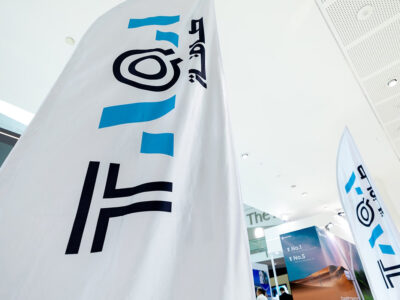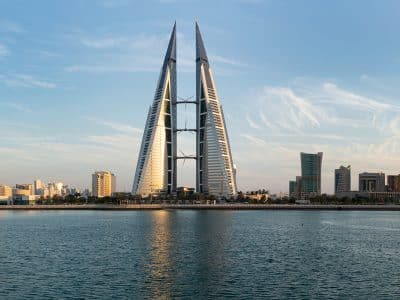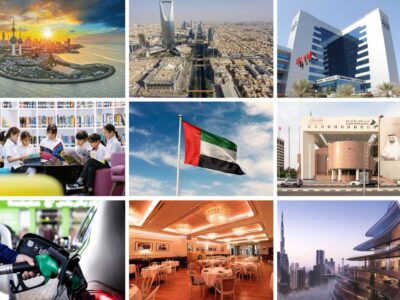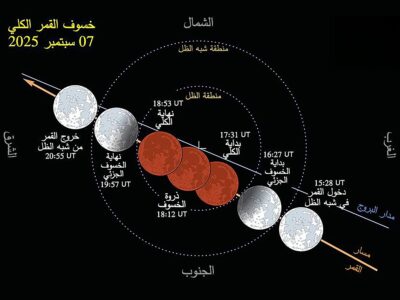Ras Al Khaimah is set to see a boom in employment generation and demand for residential real estate, following the decision of California-headquartered Statevolt, a global leader in green industrialisation, to set up its mega, $3.2 billion gigafactory in the emirate, industry and human resources (HR) experts said.
Statevolt’s move is also expected to play a key role in strengthening the UAE’s positioning as a leader in sustainability and green transition, with Statevolt Emirates – the UAE arm of the US-based energy storage solutions provider – aiming to make its RAK gigafactory an exporting hub for major user markets, including India and several countries in Africa, besides the Gulf region.
“One of our primary goals is to give back to the local community in the coming years through direct job creation and up-skilling programmes,” Lars Carlstrom, Founder and CEO of Statevolt Emirates, told Arabian Business in an exclusive interview.
“We also hope that in the long term, through our venture, we will be able to create a wider supply chain ecosystem, encouraging suppliers and other companies to invest in the UAE, leading to an increase in job opportunities and overall increase in the country’s economy,” he said.
Senior executives at real estate companies and HR consultancies said Statevolt’s $3.2 billion gigafactory and associated ancillary and supply chain ecosystem developments are bound to lead to creations of tens of thousands of jobs across roles, including high-tech roles, attracting talents from around the world and also within the region, triggering massive housing demand in the emirate.
Statevolt’s RAK facility for semi and solid-state battery cell manufacturing is targeting production by the end of 2026.
Statevolt’s RAK facility to further eminence once it starts targeting EV sector
Carlstrom anticipates the RAK battery facility to gain further importance for the UAE once it starts targeting the EV (electric vehicle) market.
“We are aiming to target the EV market further down the line – working on balancing the grid will allow us to reach that goal, as we will be supporting the infrastructure required for EV rollout in the long-term.
“We recognise the crucial role that batteries play in the EV industry, driving innovation and sustainability forward,” he said.

The Statevolt Emirates top executive, however, said its present approach focuses on addressing the increasing worldwide demand for energy storage solutions (ESS), vital for grid stability, advancing renewable energy integration, and boosting energy efficiency.
It expects to supply batteries to a wide array of clients, encompassing various sectors such as battery parks and consumer-oriented items like power walls, he said.
“The production of battery cells at our Ras Al Khaimah facility is pivotal, providing essential energy storage solutions that are critical in facilitating the transition to renewable energy,” Carlstrom said.
“The UAE provides us with a great strategic location for exporting to key markets such as India and Africa, where energy storage solutions are rising in demand,” he added.
Carlstrom, however, ruled out more investment plans by the company in the UAE in the immediate horizon.
“We are focused on developing and opening the gigafactory in Ras Al Khaimah which is a big investment into RAK as well as the UAE.”
RAK gigafactory to cater to regional markets in a big way
Carlstrom said Statevolt Emirates will focus on exporting its next-gen battery cells to the local region, as well as to Africa, India, and other Gulf countries, utilising the great links into these markets and considering the rise in demand for quality and sustainable energy solutions in these markets.
“Choosing Africa, India, the UAE, and the broader Gulf region as key export markets is a strategic decision based on a comprehensive analysis of market dynamics, growth potential, and alignment with our business objectives,” he said.

Industry analysts said Statevolt’s move is highly strategic as Africa and India are among the fastest-growing markets globally, with their economic expansion, coupled with significant population growth, presenting a vast demand for energy storage systems.
Besides, with the UAE serving as a strategic hub for trade and logistics between the East and the West, the company can leverage the region to facilitate easier access to neighboring markets, reducing transportation costs, and improving supply chain efficiencies.
Carlstrom said he anticipates the UAE and the wider Gulf region to emerge as significant markets for green energy.
“I am certain that the UAE and the wider region have all the ingredients to become major players in the green energy market in the coming years, thanks to their commitment to sustainability, favourable business environment, and strategic location and proximity to meet the global demand,” he said.
As for the market potential, the company is currently focusing on targeting specific countries with its production, he said, adding that in India alone, it is predicted that by 2030, the demand for energy storage will reach 336.4 GWh.








